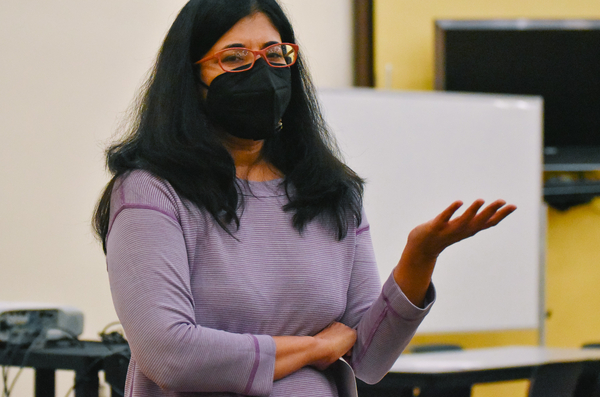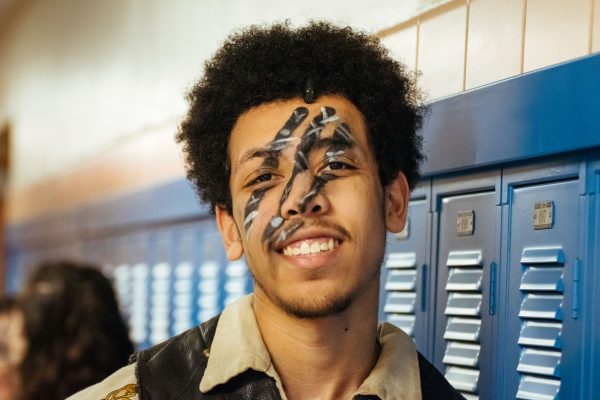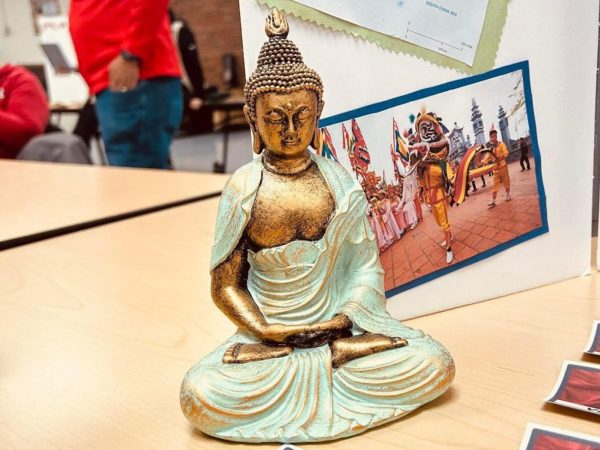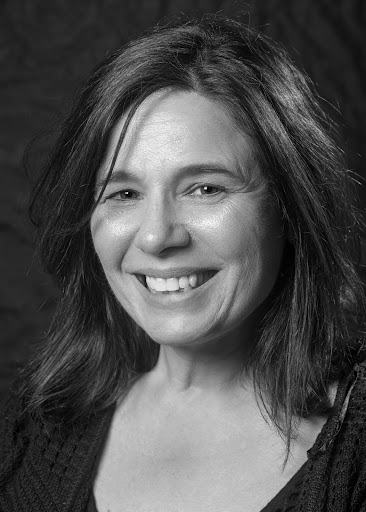Yamini Pathak: A Poet Challenging Stereotypes
New Jersey poet meets with PHS students for National Poetry Month workshop
As April is National Poetry Month, New Jersey poet Yamini Pathak shared her uniquely beautiful story that challenges the expectations put into place by those around her.
Pathak was born in India and moved to the US as an adult, but as a child she moved into different regions of India. She depicts each region as a “mini country” which sparked her love of words due to the different languages, cultures, and celebrations she experienced, but was initially unable to pursue an English degree.
“I know I was good at writing in high school. I had some encouraging teachers, but I was good at math…It’s a stereotype where Asian parents want math, science, and for kids to be self-sufficient,” reminisces Pathak, who resonated with several students whose parents push STEM related fields over the Arts.
By studying math and engineering in college, Pathak spent years in the corporate world as a software engineer until she “felt [she] had enough savings to make that switch [to writing].”
She channels her energy and pettiness from her experiences in the corporate world to inspire her poem “In My Own Skin” as she describes the contrast between her personal identity and the socially acceptable norms of the office.
Pathak received a cheer of ovations from the small audience of students as she described her attack on the venomous Petunia from Credit Policy with “flames from [her] forehead” that “laser forth and raze [Petunia] to the ground. She makes a soft pile of ash.”
As a mother of two boys, her writing day begins when the kids go to school and she does thirty minutes of yoga or walking in order to wake up.
“I start by reading a poem by a poet I love. I have a ‘poem a day’ subscription from the American Academy of Poets. I’ll write in a journal anything I’m thinking about, such as a dream. It helped me discover how I think about things. I can be myself and not pretend to be someone I’m not. I journal because no one reads it and I can make mistakes and scribble,” Pathak enthusiastically states.
After transferring some of the journal poems to her computer, she uses a thesaurus, adds limericks, conducts research, and focuses on tons and tons of revision.
“Sometimes it just flows out, sometimes two to three hours for a first draft. Sometimes it can take me two years to write a poem and feel good about it. A lot of my inspiration comes from memories, day to day life, or unresolved things. A lot of my poems come from questions to which I don’t have an answer,” says the alumnus of VONA/Voices and Community of Writers.
Most writers are not shy to writer’s block, and Pathak reiterates that she is a frequent visitor to it, but perseveres by reading a lot and putting off writing for some time.
“Nothing is more intimidating than a blank page for me. I would panic like ‘oh my god I don’t know how to write.’ [To get over writer’s block] you need to figure out your own path. Have something you can come to anytime. Write on the side if you’re writing. Dance on the side if you’re dancing. Keep in touch with that world,” mentions Pathak, author of the chapbooks Atlas of Lost Places and Breath Fire Water Song.
The MFA candidate at Antioch University, Los Angeles chose to pursue poetry as she was ready to study in a more structured manner.
“[What I enjoyed most about MFA] is that I got to read a lot, write a lot, and learn from professionals. It’s great to have a community of other writers. I dealt with imposter syndrome, especially in the beginning. You just have to work through it. If you want something badly enough, you go through the discomfort,” admits Pathak.
Pathak dedicated her poem “Ghazal for The Children Born Far From Home” to her sons as she creates a stark contrast between the commonalities of India and her Americanized children. The repeating phrase occurring in each couplet is “this is my sorrow.”
“My sons struggle with language when visiting India and conversing with cousins. I wonder if they’ll ever truly belong in America…It’s hard for them…I feel that I’ve taken them away from their culture,” proclaims Pathak.
Regardless, the family celebrates every published piece happily as writing connects Pathak to her roots and allows her to freely express herself.
When asked whether or not switching fields was worth the cost, Yamini Pathak concludes “I don’t think [studying poetry] is a waste at all. Poetry is something you bring all your life experiences to.”
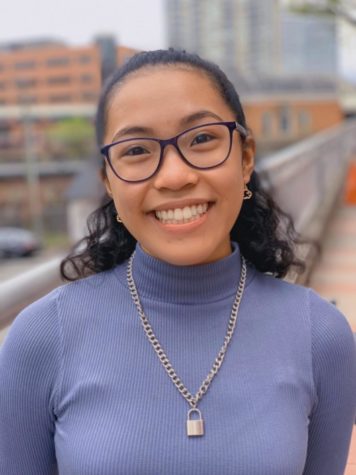
Hi I'm Kayla! I've been the co-editor in Chief since last school year, and I enjoy writing and editing stories. I love learning various things and watching...



